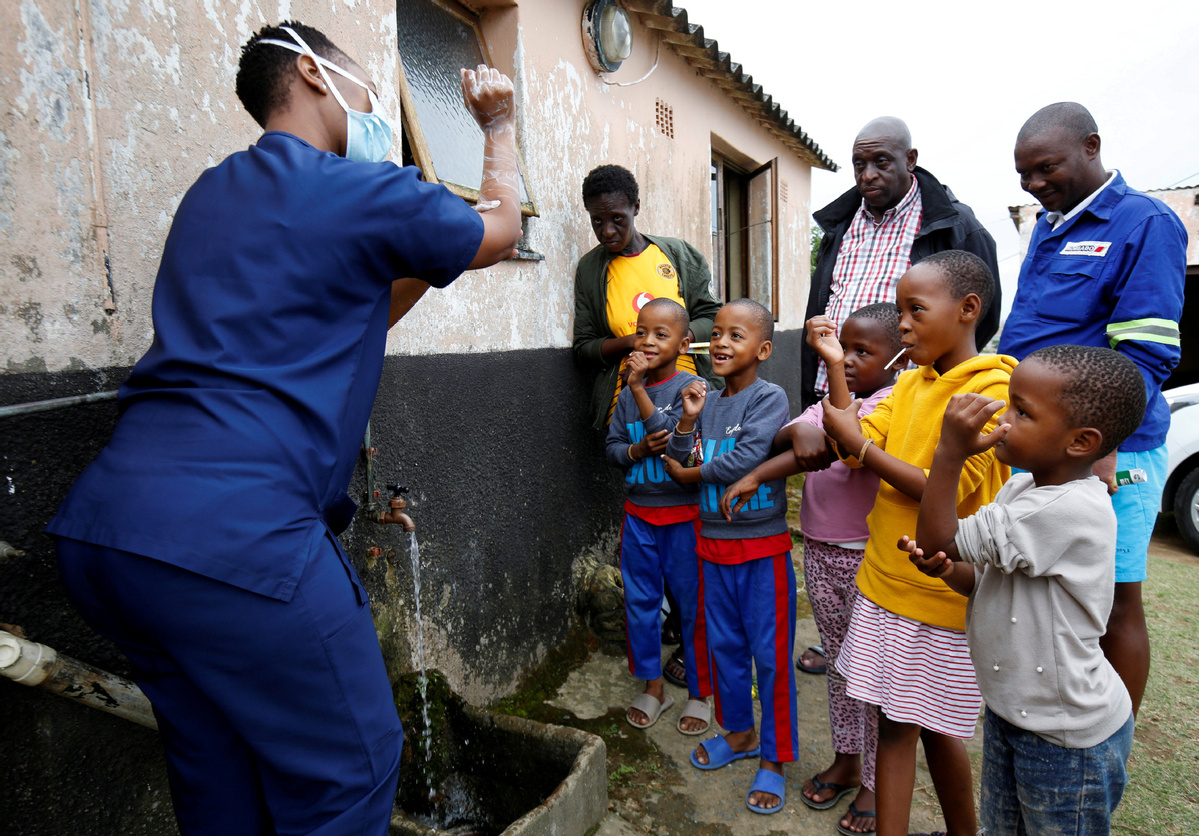Strategy set for unified virus fight in Africa
By Lewis Ndichu | China Daily Global | Updated: 2020-04-16 09:22

The number of COVID-19 cases worldwide crossed the 1.8 million mark on Wednesday, and China has seen a significant decrease in cases, but according to World Health Organization Director-General Tedros Adhanom Ghebreyesus, the pandemic is "accelerating" in other countries.
Developing countries in Africa are working closely to avoid a scenario in which the response to COVID-19 could go awry.
At least 24 countries on the continent have imposed full border closures, around 10 have banned international air traffic, and some have imposed travel restrictions on people from countries considered virus hot spots by the Africa Centres for Disease Control and Prevention.
The African Union published the Africa Joint Continental Strategy for COVID-19 Outbreak last month to prevent severe illness and death from the virus in member states and minimize social disruption and economic consequences from the outbreak.
The strategy provides a framework to coordinate efforts of member states, AU agencies, the WHO, and other partners to ensure synergy, minimize duplication, and promote evidence-based public health practices for surveillance, prevention, diagnosis, treatment and control of COVID-19.
Internationally, it provides a framework for Africa to ensure complementarity and synergy of guidance and advocacy from the WHO.
Additionally, the strategy will help maximize support from the World Bank's emergency health support fund for developing countries.
A coordinated economic policy response is likely to absorb the impact of economic fallout as a result of COVID-19. This is vital for the sharing of knowledge, resources and technologies to facilitate and accelerate the development of vaccines.
Regionally, the strategy provides a platform for the AU to ensure high-level political commitment and leadership across all sectors involved in the COVID-19 response to peace and security. It echoes United Nations Secretary-General Antonio Guterres' appeal on March 23 for an immediate ceasefire between warring factions across the globe.
The strategy provides an opportunity to urgently implement the African Continental Free TradeArea, which is expected to take effect in July, to limit dependence on external partners and help mitigate some of the COVID-19 impacts.
It will help maintain Africa's fiscal position and limit the impact of painful macroeconomic adjustments due to lower prices of oil, natural gas, metals and minerals.
The continental strategy is responsible for preventing severe illness and death from COVID-19 infections in member states and minimizing social disruption and economic consequences of COVID-19 outbreaks.
It provides a great opportunity for different players in the food security value chain to ensure that the food supply is not affected by government-imposed measures, such as stay-at-home orders, travel bans, lockdowns and nighttime curfews.
The strategy will enable regional economic communities on the continent to partner in promoting the implementation of Africa CDC guidelines, particularly regarding borders and trade; establish an ad hoc regional coordination committee for COVID-19 response; conduct research on COVID-19; and inform partner states about new technologies, treatment, vaccines and behavior of the virus.
In addition, it will help them agree on final destinations and stops at designated points along the transportation corridors in a bid to limit chances of COVID-19's spread during transit.
Nationally, the strategy will enable governments to review and revise their budgets to prioritize spending toward mitigating impacts from COVID-19 on their economies.
Hope now rests on the effective implementation of the strategy. However, it will be vital to define a research agenda for the COVID-19 outbreak and provide a concerted, science-based effort to combat the pandemic in Africa.
Developing work streams for a science-based effort for the outbreak, with clear mandates and targets, will go a long way in helping connect COVID-19 research with funding.
Finally, developing advisory units across all disciplines that produce up-to-date information for governments will be crucial in identifying gaps and potential areas of leverage.
























